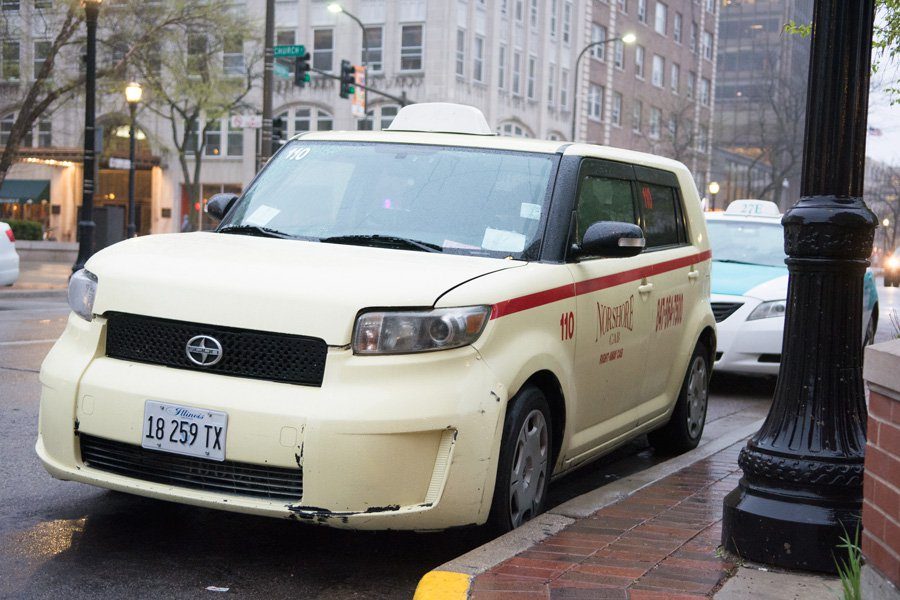Senior Services department proposes updated transportation plan
Daily file photo by Lauren Duquette
A taxicab in Evanston. Evanston’s Senior Services department proposed an update to the current subsidized ride program for seniors and disabled allowing, which would allow participants in the program access to a more diverse spread of transportation modes and locations.
December 5, 2017
The Human Services Committee on Monday referred a proposal expanding transportation services for elderly and disabled residents to the Administration and Public Works Committee for further discussion.
The proposed plan would allow participants in Evanston’s benefit card program — which offers seniors discounts at participating Evanston businesses and other benefits in the community — to use a debit card to pay for transportation.
According to a city document, card users would be able to load up to $75 per month onto the card and the city would match the funds. The new system would allow users to pay for any mode of transportation and would not be limited to a specific service area.
Currently, seniors can use a subsidized coupon allowing each individual 10 one-way taxi rides per week, capping the ride cost at $4, said Audrey Thompson, Evanston’s long-term care ombudsman. However, seniors can only use the coupons toward taxi rides in Evanston, Lincolnwood, Skokie and Wilmette.
Thompson said the city’s Senior Services department, which oversees the benefit card program, has received complaints from riders about mistreatment by cab drivers who were “upset” about the capped fee.
“There are some discrimination by drivers,” she said. “A lot of times when the driver knows that the person has a cab coupon they may not show up.”
Mistreatment from drivers, the restricted service area and the single mode of transportation permitted largely influenced the revision of the current transportation plan for seniors and disabled people, Thompson said.
According to a city document, almost half of the city’s funding goes toward 6 percent of users. With the current plan, 39 out of 671 total riders comprise 45 percent of total coupons purchased.
“If we want to be better stewards of the money the city is providing for this service, then we got to make some changes,” Thompson said.
The proposed plan would allow card holders to use the funds on the card to pay for trips with ridesharing apps Uber and Lyft, the Metra, CJE SeniorLife bus, Amtrak, taxis and CTA services, the document said. The $75 cap would ensure funds are distributed more evenly among users.
Though users would have to pay full fare for their rides, they would not be limited to a specific service provider or a certain area, allowing for greater diversity and freedom, Thompson said.
Helen Gagel, a member of Evanston’s Age Friendly Task Force, said the task force would help educate seniors on the new transportation plan should it pass in council. She added that providing accessible transportation methods is important to supporting older adults’ social health.
“We commend the city staff for designing a workable solution that will give older adults and people with disabilities a variety of choices for transportation modes and destinations,” Gagel said. “It’s a significant step forward in making Evanston’s transportation network more age-friendly.”
Email: [email protected]
Twitter: @amelialangas


